Pricing Little Beau....evaluating value of updating
weedyacres
4 years ago
Featured Answer
Sort by:Oldest
Comments (58)
User
4 years agoweedyacres
4 years agoRelated Discussions
Windsor: estimate age & value?
Comments (7)Thanks for the input linda. Curious what your eyes see that makes you suspect plastic for the seat? (looked for shiny areas but my tired eyes don't see it ;) I really liked this chair at first look (love a Windsor!). What attracted me was that it was a little different. But now that I've had time to study the photos it seems as if it might be trying too hard to be Early American? It's the turned wood spindles on the back that keeps throwing me. I see what you mean about the rake and splay, both look on the tight side. But then I see something else that makes me wonder. Are you able to zoom in close enough on the rear view, to the back of the seat? Can you see the joinery? It's too precise for hand-made (which the really, really old Windsors were, but we already know it's not 18th century). Would they do joinery like that in a newer, more mass produced repro? In a newer/later (say 1950's) repro I'd expect screws and glue and perhaps a solid piece of wood for the back section of the seat, with support underneath? Not pieced together at middle + sides. Also wonder now if it that is a bad strip job but a good poly job. (Would expect finish 'wear' on the seat, maybe upper back from being handled, but not legs.) Doing a lot of wondering, here, lol. (Just stumbled onto it, & it's quite far from me so not easy to do a go see.) It's a little chair I was considering for the farm house. I like your value far better than asking price ;) Oh, I had all that typed and just now received seat bottom pic. Repair could explain rake and splay. Not thrilled with those staples....See MoreWhich remodel would be better for my house value?
Comments (17)I vote for the bathroom. If you are "looking ahead", here's our story. In 1989 we bought a 2bd 1ba cottage with an illegal 2-room apartment on the ground floor/garage level. After taking a hideous 18 months to remodel it in fits and starts, in 1991 it became a 2bd 2ba with a master suite downstairs to replace the apartment. When the RE appraiser came to look at it, he criticised us for putting in such a "disproportionate" and "huge" bedroom suite. Remember this is 1991 - very few people had ever seen big remodeled kitchens and master bedroom suites in our (older housing) city, let alone HAD them. We didn't get the appraisal amt we hoped for and couldn't refinance. Fast-forward to 2003. Neighborhood is gentrifying fast, old people moving out and young couples moving in. We decide to take out some equity and try the refinance again. Appraiser comes out, walks in the door, and says, "Wow, great job!" (tall cathedral ceilings, big picture windows looking out towards the hills). He goes downstairs and says, "And you even have a master bedroom suite! Gee, lots of people want these nowadays and so few of the houses around here have them!" We got an incredible appraisal, in fact he pulled comps on 3bd homes because he said so few 2bd homes in our area had the features we did. My niece and nephew, both of whom own homes and are getting married this year, would kill to have a master bathroom ensuite. Go for it!...See MorePrice of Other Homes in Developement Affect Value
Comments (33)FmrQuahog, Either you are just a troll or are just skimming my posts. I stated that comps are used and then adjustments are made for items that are not of equal value. Such as condition. Then you come on in the next post stating: "Why should an uncared for home drag down the price of my lovingly maintained and upgraded home" And again, it will not affect your value, as condition is another one of those items that are adjusted when comparing two separate properties. You also state: "I suggested that the value of a home should be calculated by independently appraising it in it's entirety." But at what baseline would the appraiser start at? At some arbitrary, random price? Like others have said, two homes exactly alike, can have two very different market values in two different locations. Everything in the free market is valued this way, rather you want to admit it or not, even your widgets that you make at work. You don't really think that the buyers of your widgets don't compare the attributes and qualities of your product against the competition do you? Sure they do. And after comparing them to the rest of the comparable products on the market at that time, they decide if your asking price is reasonable or not. Same process as valuating your home....See MoreValue of staging (in general and this home in particular)
Comments (31)WOW... looks like a spread from Better Homes & Gardens! Rather than waste the $$ on a dubious "stager", I'd spend similar dollars for a PROFESSIONAL PHOTOGRAPHER to shoot and compile a great ALBUM, as is often done for premium props. *They* (the photog) will do the staging for "free", as part of the job... a 2-fer. ;') Rather than posting fewer pics, to "lure" buyers to visit, you want a sales "package" that's so complete, out-of-town (and int'l) buyers feel compelled to drop a deposit over the phone, just to "hold" it! I have family in Lilburn, and thought I had some knowledge of Alpharetta... can only surmise that your distance from ATL, smallish lot, and possibly "bad" roads, is the reason your property is not appraised at 7-figures. Your "realtor" and her behavior are pushing my skepticism gauge deep into the red! In addition to the oft-mentioned and obvious kickbacks mentioned above, consider some more sinister scenarios: 1) Realtor (licensed?) and/or Stager are new to biz, or returning to biz after long hiatus, and your home is SO juicy--in the photogenic sense--that one or both of these "service" providers wants to use it in their own sales materials, e.g. brochures, etc... so they REALLY need it to be "picture perfect". Having you pay for their benefit is part of the CON. Under GA law, you may have no rights to prevent this, or charge $$ for this, after house is sold... not sure. 1a) Same as (1), but some cable TV or infomercial angle is involved... behind your back. Red flag if they want you gone "all day" for an "open house". 2) SUPER naughty: Realtor is deliberately low-balling you, so her "straw" buyer (aka sister/brother with different last name) can get a screaming deal, and/or FLIP your house! =:O Your totally NON-distressed situ = hold out for high end of price range. Someone will fall in LOVE with what it offers. The US Dollar is dropping again... make sure listing is available to key INTERNATIONAL markets. As noted above, the Jumbo loan market is more than a little skittish right now, so your buyers are going to be "liquid" folks who can bring ~$150k cash to the deal. THAT is who you need to reach. PS: What is the SIZE of that lake, in acres?...See MoreDenita
4 years agoweedyacres
4 years agoDenita
4 years agolast modified: 4 years agonew-beginning
4 years agomidcenturymodernlove
4 years agolast modified: 4 years agoweedyacres
4 years agoAlly De
4 years agolast modified: 4 years agonickel_kg
4 years agobry911
4 years agolast modified: 4 years agoweedyacres
4 years agohomechef59
4 years agoDenita
4 years agoweedyacres
4 years agoDenita
4 years agohomechef59
4 years agoDenita
4 years agobry911
4 years agolast modified: 4 years agoncrealestateguy
4 years agorrah
4 years agoweedyacres
4 years agoDenita
4 years agolast modified: 4 years agoncrealestateguy
4 years agoDenita
4 years agolast modified: 4 years agolyfia
4 years agoUser
4 years agoweedyacres
4 years agoUser
4 years agoncrealestateguy
4 years agohomechef59
4 years agolast modified: 4 years agobry911
4 years agolast modified: 4 years agoncrealestateguy
4 years agoDenita
4 years agolast modified: 4 years agobry911
4 years agolast modified: 4 years agoDenita
4 years agolast modified: 4 years agobry911
4 years agolast modified: 4 years agoDenita
4 years agolast modified: 4 years agobry911
4 years agolast modified: 4 years agoDenita
4 years agobry911
4 years agolast modified: 4 years agosheilajoyce_gw
4 years agoDenita
4 years agolast modified: 4 years agoweedyacres
3 years agolast modified: 3 years agoDenita
3 years agohomechef59
3 years agokathyg_in_mi
3 years agofunction_first
3 years agomjlb
3 years ago
Related Stories
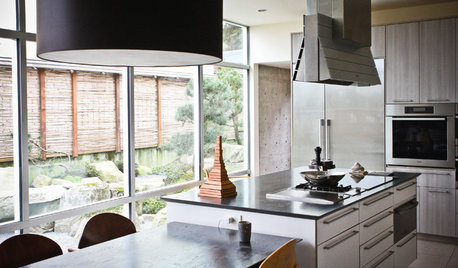
HOUZZ TOURSMy Houzz: A Kitchen Update With Indoor-Outdoor Beauty
A Japanese-inspired kitchen and garden remodel gives a Seattle couple their own little piece of Kyoto
Full Story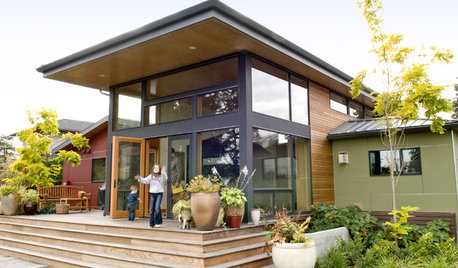
SELLING YOUR HOUSE10 Ways to Boost Your Home's Resale Value
Figure out which renovations will pay off, and you'll have more money in your pocket when that 'Sold' sign is hung
Full Story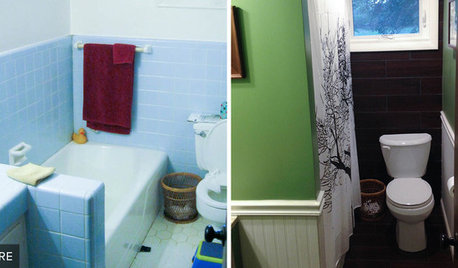
BATHROOM MAKEOVERSReader Bathroom: DIY Updates for $1,800 in North Carolina
A Raleigh couple create a shower for their kids and guests using budget-conscious DIY ingenuity
Full Story
KITCHEN DESIGN11 Ways to Update Your Kitchen Without a Sledgehammer
Give your kitchen a new look by making small improvements that have big impact
Full Story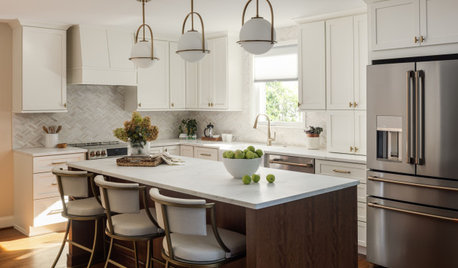
MOST POPULAR5 Remodels That Make Good Resale Value Sense — and 5 That Don’t
Find out which projects offer the best return on your investment dollars
Full Story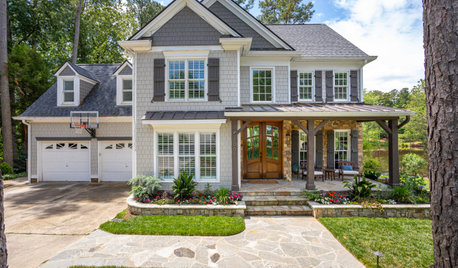
SELLING YOUR HOUSEA Designer’s Top 10 Tips for Increasing Home Value
These suggestions for decorating, remodeling and adding storage will help your home stand out on the market
Full Story
DECORATING GUIDES10 Ways to Update a Victorian Living Room
Bring your period living room sensitively into the 21st century with these simple yet effective design tricks
Full Story
GREEN BUILDINGInsulation Basics: Heat, R-Value and the Building Envelope
Learn how heat moves through a home and the materials that can stop it, to make sure your insulation is as effective as you think
Full Story
KITCHEN CABINETSHow to Update Your Kitchen Cabinets With Paint
A pro gives advice on when and how to paint your cabinets. Get the step-by-step
Full Story
MOST POPULAR8 Little Remodeling Touches That Make a Big Difference
Make your life easier while making your home nicer, with these design details you'll really appreciate
Full Story




weedyacresOriginal Author